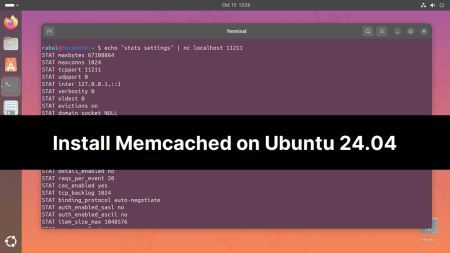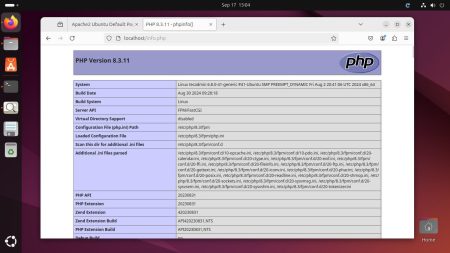The PHP Composer is a package management tool for PHP similar to NPM for Nodejs and bundle for Ruby. Using the composer tool we can define required libraries for our project and install it with the composer in the single command. We don’t need to search for each library to install.
This tutorial helps you to install and configure PHP composer on Ubuntu 19.10, Ubuntu 18.04 LTS, and Ubuntu 16.04 LTS systems.
1. Prerequisites
- Shell access to a running Ubuntu system with sudo privilege.
- PHP must be installed and configured, version 5.3 or higher.
2. Install Composer on Ubuntu
To install PHP composer on an Ubuntu system. We just need to download the composer executable and put it under bin directory.
curl -sS https://getcomposer.org/installer | php
Now use the following commands to make composer available globally for all users in your system, which can be used for all PHP applications on that system.
sudo mv composer.phar /usr/local/bin/composerchmod +x /usr/local/bin/composer
After installation of the composer on your system. Type composer at the command prompt. This will provide you with composer version details along with options available with the composer command.
composer
Output:
/ ____/___ ____ ___ ____ ____ ________ _____
/ / / __ \/ __ `__ \/ __ \/ __ \/ ___/ _ \/ ___/
/ /___/ /_/ / / / / / / /_/ / /_/ (__ ) __/ /
\____/\____/_/ /_/ /_/ .___/\____/____/\___/_/
/_/
Composer version 2.1.14 2021-11-30 10:51:43
Usage:
command [options] [arguments]
Options:
-h, --help Display this help message
-q, --quiet Do not output any message
-V, --version Display this application version
--ansi Force ANSI output
--no-ansi Disable ANSI output
-n, --no-interaction Do not ask any interactive question
--profile Display timing and memory usage information
--no-plugins Whether to disable plugins.
-d, --working-dir=WORKING-DIR If specified, use the given directory as working directory.
--no-cache Prevent use of the cache
3. Upgrade Composer
You can download the latest version of the composer by executing the same commands used for installation. The composer also has the capabilities to update itself. Use the following command to update the composer itself.
sudo composer self-update
Conclusion
This tutorial described you to install PHP Composer on Ubuntu systems. Also provides commands to upgrade composer with a single command.



10 Comments
Now its working.
Thanks
still works tnx.
i don’t have directory “bin” in usr/local/, instead there is a directory “sbin”.
what should i do?
it worked for me, thanks
wow.i love your posts.
Thank You Very Much
Thank you!
Thk u dude this is ok tuto!
Thanks
Thanks !!!
Thanks you!